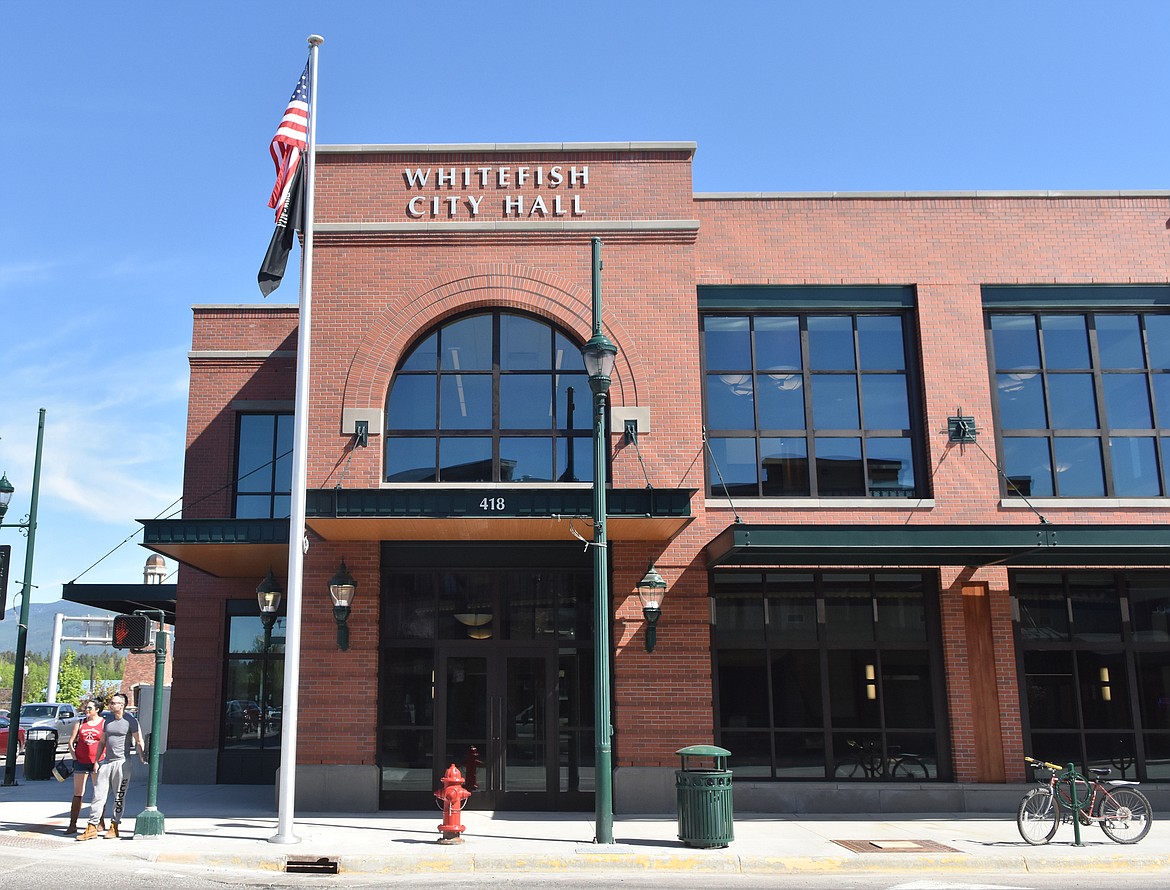Judge throws out lawsuit alleging city violated open meeting laws
A Flathead District Court Judge has dismissed a lawsuit against the City of Whitefish filed by a private planning consultant claiming the city violated open meeting laws.
Judge Heidi Ulbricht ruled in favor of the city in an order issued last week dismissing the lawsuit that had been filed over meetings held in the creation of the city’s now invalid affordable housing program.
“The court can no longer grant effective relief concerning the ordinance and resolutions and any further ruling on the merits in such a case would constitute an impermissible advisory opinion based on a hypothetical situation where the ordinances and resolution continued to be enforceable and viable,” Ulbricht wrote in her decision.
Mayre Flowers and her company CommUnity Consulting in 2019 filed the lawsuit claiming that during the city’s process of creating the housing program, known as the Legacy Homes Program, closed-door meetings were held and the city refused requests to open the meetings or provide documents related to the meetings thus allegedly violating Montana’s open meeting laws, and violating her right to participate during the process of creating the housing program.
The city denies the claims and subsequently sought dismissal of the case. Whitefish Mayor John Muhlfeld in an opinion piece in the Pilot called the lawsuit an “unfortunate abuse of the legal system” saying the public process in creating the housing program was transparent.
Then earlier this year House Bill 259 was signed into state law effectively prohibiting inclusionary zoning and rendering null the portion of the city’s housing program that relied on it.
Following this, the city again asked the court to dismiss the lawsuit this time because the bill had nullified Flowers’ request that the ordinance creating the housing program be found as void. While Flowers said the lawsuit should be allowed to continue asking the court to still determine if the city had violated the provisions of the Right to Participate and the Right to Know in the Montana Constitution.
In an opinion piece in the Pilot, Flowers responded to the decision saying the public’s work is still not done continuing to insist on an inclusive public participation process.
“And perhaps it is never done, as defending and insisting on the public’s meaningful right to have timely access to information and to observe the work of our government in making policy and decisions is a right we must always speak up for,” she wrote.
Ultimately, Ulbricht ruled that because state law rendered the Legacy Homes Program moot the court could not issue a judgment concerning the program itself because there would be no need for the city to “independently repeal or amend a program that the state legislature has rendered a nullity and the court’s declaring that such an act is necessary would itself be an idle act.”
In her ruling, Ulbricht did note that it was undisputed that the city did not generally advertise or invite the public to meetings of a working group related to creating the inclusionary zoning program. Flowers said those work group meetings should be open to the public, while the city said that the work group did not fall under any of the categories required by state law to hold open meetings.
Flower’s attorney argued that the court should still consider whether the city violated open meeting laws claiming that the same action could occur again because the city has not agreed to cease its “allegedly illegal activity.”
Ulbricht said Flowers, however, provided no reliable evidence that such conduct is likely to recur and provides no examples of alleged violations beyond those in the case.
“The Court recognizes the importance of the public’s right to know,” Ulbricht wrote. “This, however, is not sufficient to avoid dismissal based on mootness [of the case].”
In addition to the city, the lawsuit also listed the Whitefish City Council, the Whitefish Strategic Housing Plan Steering Committee and the inclusionary zoning ad hoc subcommittee as defendants in the case.


